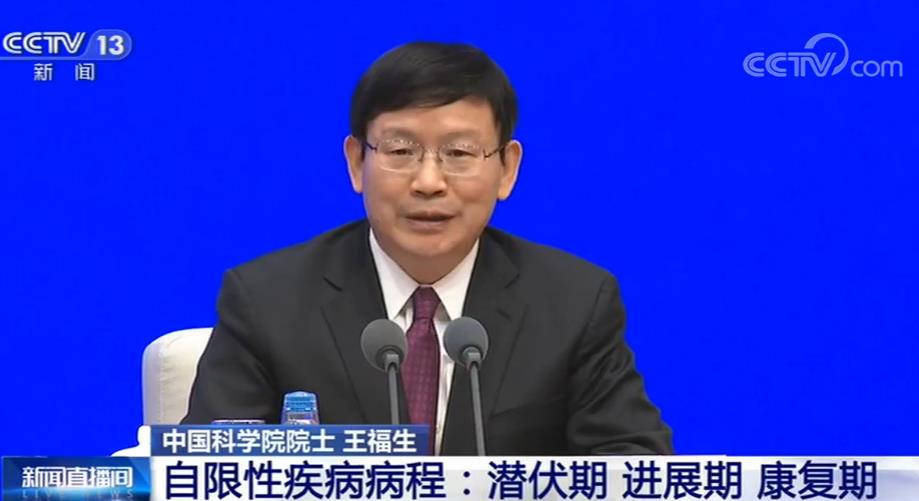Academician of Chinese Academy of Sciences explains "self-limited diseases"
CCTV News:At the press conference of the joint prevention and control mechanism in the State Council this morning (21st), a reporter asked, experts said that COVID-19 is a self-limited disease, so, can mild patients take medicine in isolation at home? How to treat self-limited diseases? Wang Fusheng, an academician of China Academy of Sciences, explained this.

Self-limiting disease is a technical term, which generally means that although there are obvious clinical symptoms after acute infection of pathogens, such as fever, cough and runny nose, these symptoms do not last long. Even without treatment, the clinical symptoms will disappear, which will not cause permanent harm to the body or lead to chronic infection. This is called acute self-limiting disease. For example, for the common cold, it is mainly to pay attention to rest, drink plenty of water properly and maintain nutrition. Even without special treatment, the related symptoms will disappear in a week or so.
Course of self-limited disease: latent period, progressive period and rehabilitation period.
Taking a cold as an example, the clinical course of self-limited diseases can be divided into three stages: incubation period, progressive period and rehabilitation period. The so-called incubation period, mainly because the virus enters the human body and replicates in large quantities, can have no clinical symptoms; The so-called progressive stage is the interaction between human immune system and virus, which leads to a series of pathological changes such as respiratory inflammation and clinical symptoms. The so-called recovery period means that the immune function of the human body defeats the virus and clears the virus in the human body. The patient will be fine after these three stages, and the patient will recover naturally.
Of course, self-limiting diseases do not mean that treatment is not needed.
Mild patients with good rest, good mood and strong immunity recover quickly.
Specifically, in COVID-19, the proportion of light and ordinary patients is over 80%. Mild patients may recover gradually if they have good physical conditions, good rest, good mood and proper diet. After the onset, human immunity has an overall advantage.
Don’t panic too much. Severe patients generally don’t have sequelae.
Even serious patients can maintain a good immune state, shorten the onset period and enter the rehabilitation period quickly if they can get timely and professional treatment, use some drugs appropriately and take oxygen when necessary. Generally, it will not cause sequelae, so you don’t have to panic too much.
Special attention should be paid to the elderly with basic diseases and low immunity.
However, if the elderly or people with serious basic diseases are not paid attention to, even the common cold may cause serious organ or tissue damage and even life-threatening. Therefore, people with low immunity who suffer from COVID-19 should pay more attention to it. Patients should stay in bed as much as possible, avoid catching cold, properly strengthen nutrition, and the most important thing is not to be afraid, to have confidence, to maintain a good attitude, which is the best immunity, and to actively cooperate with clinical treatment, so they can gradually recover.
We should draw your attention to the fact that COVID-19 is highly contagious. No matter whether it is mild or severe, we must pay attention to isolation, minimize close contact and reduce the chance of infecting others.